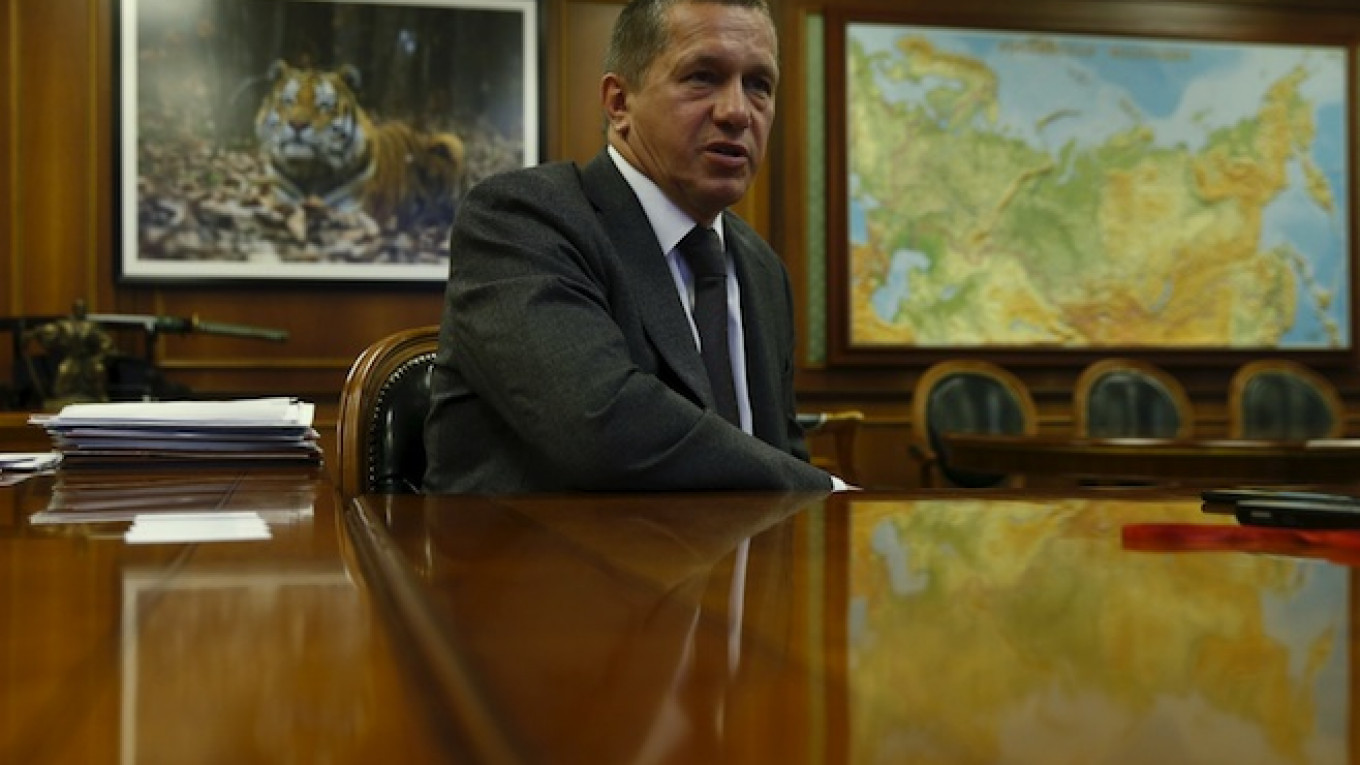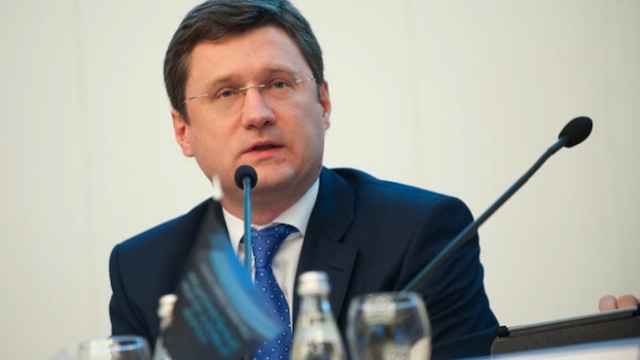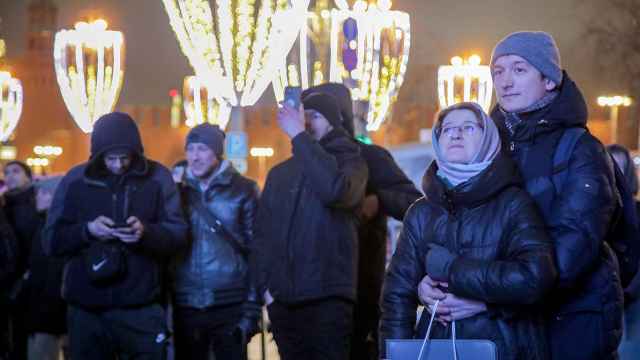There is no pressure for U.S. energy major ExxonMobil to leave Russia's Sakhalin-1 oil and gas project, Yuri Trutnev, Deputy Prime Minister and Presidential Envoy to Russia's far east, said.
Exxon, which operates and owns a 30 percent stake in Sakhalin-1, in Russia's far east, has been in a tax dispute with Russian authorities over the project, fuelling concerns that it could decide to leave its only producing asset in Russia.
"It depends on Exxon, no one is taking any action to oust the company out of the project," Trutnev said in an interview for the Reuters Russia Investment summit, when asked whether there are risks that Exxon may leave the project.
In April, Exxon lodged a claim against Russia at the Stockholm arbitrage court as part of a tax dispute over Sakhalin-1, which Russia calls "one of our best" projects.
According to Trutnev, the project "is more than profitable" for Exxon and it was clinched on terms "no one is able to get in the Russian Federation now."
Russia's state oil giant Rosneft, also a shareholder in Sakhalin-1, said in June that Exxon's lawsuit was defending "the project's interests in general."
In 2014, the U.S. company halted cooperation with Rosneft in the Arctic due to Western sanctions imposed over Moscow's role in the Ukraine crisis.
Other participants in Sakhalin-1, which is operated under a production-sharing agreement, are Japan's Sodeco and India's ONGC.
Diamonds in Far East
At a time when relations with the West are at their lowest since the Cold War because of the conflict in Ukraine, Russian President Vladimir Putin has made development in the far east the country's priority.
It is underdeveloped, sparsely populated, and remote. Travelling there by plane from Moscow takes about eight hours -- the same flying time as between Moscow and New York.
The timing for Putin's initiative is not auspicious: the recent turmoil on stock markets in China has raised doubts about the ability of Chinese investors to sink money into the far east, while falling oil prices have left the Russian state with less money to invest.
But Trutnev, 59, a father of five who spends roughly half of his time in Russia's far east, said the turbulence in Chinese stock markets made Russia more, not less, attractive for Chinese investors.
"Crises and market distortions highlight the need for diversification," he said.
However, China is not as active as its neighbours — Japan and South Korea — in investing in the far east, according to Trutnev.
"I should say this honestly: China is our big neighbour, we have friendly relations but in terms of investments the Japanese and (South) Korean investors, for example, are more active. They are faster," Trutnev said. "I don't know why."
One of his ideas to develop the far east is setting up a diamond trading hub in the Pacific port of Vladivostok, hoping that some Asian customers, like China, may switch their diamond purchases from traditional European diamond trading hub Antwerp.
In early October, Russian state-controlled rough diamond monopoly Alrosa should update Trutnev on when the trading may start, he said.
Russia's largest hydropower producer RusHydro, where Trutnev is the board chairman, appointed Nikolay Shulginov as its new head earlier this month.
It was the second major reshuffle at a state firm in two months, after the head of Russian Railways was also removed.
Trutnev said Shulginov has signed a five-year contract and may make "some changes" to Rushydro's strategy, but nothing revolutionary.
A Message from The Moscow Times:
Dear readers,
We are facing unprecedented challenges. Russia's Prosecutor General's Office has designated The Moscow Times as an "undesirable" organization, criminalizing our work and putting our staff at risk of prosecution. This follows our earlier unjust labeling as a "foreign agent."
These actions are direct attempts to silence independent journalism in Russia. The authorities claim our work "discredits the decisions of the Russian leadership." We see things differently: we strive to provide accurate, unbiased reporting on Russia.
We, the journalists of The Moscow Times, refuse to be silenced. But to continue our work, we need your help.
Your support, no matter how small, makes a world of difference. If you can, please support us monthly starting from just $2. It's quick to set up, and every contribution makes a significant impact.
By supporting The Moscow Times, you're defending open, independent journalism in the face of repression. Thank you for standing with us.
Remind me later.






